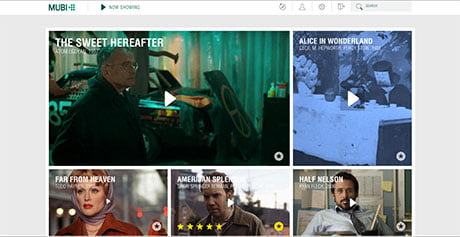Curation revolution
By Greg Rubidge
17-11-2017
As the documentary industry heads to the Netherlands for another International Documentary Festival Amsterdam (IDFA), it is perhaps worth pausing to consider the emerging trends in the documentary world from a distributor’s perspective.
On the digital front, we are seeing continued growth in the industry – not just top-line sales but the emergence of more specialised outlets, both in SVoD or AVoD services. With the exponential growth of content online, curation is becoming ever more important in allowing audiences to find content.
For example, film website MUBI’s model has ‘pivoted’ from trying to programme all indie and classic films when it first started to a highly curated list of titles.
The model has proven much more successful for both content providers and the SVoD service. Its customer base expects its tastemakers to narrow down what to watch. There is a bond/relationship there with the programmers that’s not dissimilar to traditional broadcast but also not confined to 24/7 schedule slots.
Like the emergence of the 500-channel cable world about 40 years ago – with niche channels that popped up across all genres and topic – we’re seeing a similar trend play out now with ad-supported AVoD channels and SVoD services, where subscribers pay a monthly fee to access content (Netflix, Amazon Prime) but with a much more curated offering.

Film website MUBI opted to offer a highly curated catalogue
Models range from modest licence fees with varying degrees of exclusivity to revenue sharing. For these new outlets to thrive and survive they have to be compelling enough in content, curation and audience engagement, otherwise they won’t be around for long, given the streaming and admin costs needed to maintain a digital channel.
While we see growth in this area, consolidation within the industry surely can’t be more than a year or two away, as services with strong subscriber bases and revenue streams either get scooped up by bigger media players or acquire rivals that are struggling in a bid to build their own subscription income.
I cannot help feeling that once a few clear leaders emerge and become more established through this consolidation phase this will be good news for content creators. There will be more ‘traditional’ sales opportunities for documentaries, with licence fees climbing as platforms bid to secure exclusive rights to programmes in any given territory.
As a digital distributor, our philosophy has always been to explore new opportunities and test out new outlets and models to determine who will gain traction and who won’t. Generally, every 18 months we see sales from one top-performing VoD outlet shift to another, perhaps with a different model, or they may tweak their acquisition priorities. With success comes more content, often from studios or major networks, that can dilute earnings on a platform for mid-tier or indie docs.
In a fast-changing environment, it’s not sensible to rely on any one VoD outlet as a buyer because their relevance or growth may change over a relatively short period.
Another trend in the industry is that transactional VoD (TVoD) revenues are under pressure from the ‘all inclusive’ SVoD outlets like Netflix and Amazon Prime.
We’ve also heard from various partners that many content providers are placing content on SVoD platforms the same day as they debut on TVoD services, which obviously impacts TVoD revenue substantially.
Depending on the profile of a documentary and whether or not we are releasing it theatrically as all, we at Syndicado still insist on maintaining a 90-day exclusive window on TVoD and electronic sell-through services, especially for cable VoD and pay per view. For TV series, we can be more flexible about when a property goes straight to SVoD, or even AVoD, since revenue from these services for TV series is much stronger than transactional sales.
The other bellwether trend we saw earlier this year was Amazon Prime Video coming to Sundance with a blanket offer for finished documentary films. With so many layers cut out of the traditional industry, we’ve had to respond by diversifying our business, including spinning off a traditional sales agency where we can grow our catalogue through financing and distribution deals.
On the traditional sales side, we’re seeing more growth in China, where there is a significant demand from several media companies. Colleagues in the industry, but those with a narrative features slate, have commented on the strength of sales in these markets.
We are also seeing more growth from SVoD platforms in Asia and Africa, particularly via mobile devices. These services are increasingly attracting investment from traditional European and Chinese media companies and creating a significant content opportunity in the region.
So, as the documentary industry again heads to IDFA, the winds of change are certainly blowing, driven by the hunger for great factual content. And the future seems bright for creators as we look set to enter a period of unprecedented VoD consolidation.
International Documentary Festival Amsterdam runs from November 15 to 26.














.jpg)




























